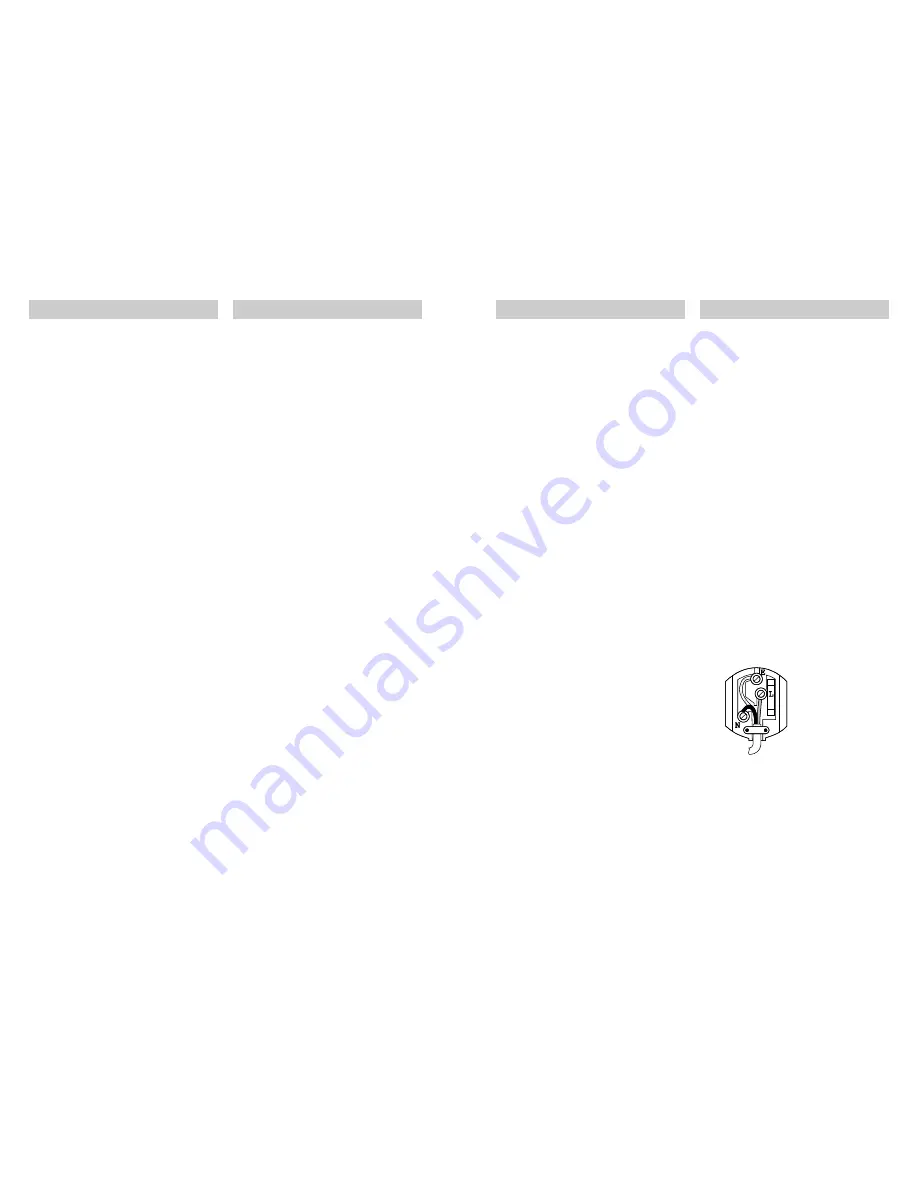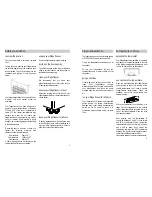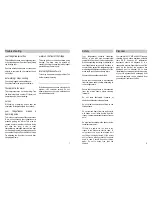
Cleaning your fridge freezer
Food storage
Defrosting your fridge freezer
Changing the plug
on the outside
Use a good wax furniture polish to clean your
fridge freezer's exterior. Make sure that the
doors are closed, to prevent polish getting on
the magnetic door seal or inside. Do not use
an aerosol polish as the spray may damage
plastic parts.
The grill of the condenser at the back can be
vacuumed using a brush attachment.
on the inside
Regular cleaning will keep your fridge freezer
free from bacteria and germs, ensuring
healthier food storage.
•
Switch off and unplug from mains supply.
•
Remove all the shelves, salad drawers
and door fittings.
•
Wipe the inside with a soft cloth
dampened with a solution of one
teaspoon of bicarbonate of soda to one
litre of warm water. Rinse with clean
warm water and dry thoroughly.
•
After replacing shelves, salad drawers
and door fittings, plug in and switch on
the mains supply.
Take care to avoid the light and thermostat
control. Water could cause serious electrical
damage.
Do not use soaps, wire wool, scouring
powder or disinfectants of any kind.
To prevent transfer of flavours and drying out,
food should be separately packed or
covered. Fruit and vegetables need not be
wrapped.
Always let pre-cooked food cool down before
you put it in your fridge freezer. This will stop
the internal temperature of your fridge freezer
from rising.
Leave space around food, this will allow cold
air to circulate.
Cooked meats should always be stored on a
shelf above raw meats to avoid bacterial
transfer. Keep raw meat on a plate which is
large enough to collect juices and cover it
with cling film or foil.
Do not exceed the manufacturer’s
recommended storage times for frozen
foods.
freezing fresh food
Hot foods should be allowed to cool before
freezing them.
Food will freeze quicker if it is in small
portions.
Do not put fresh food to be frozen in contact
with food already frozen.
3
fridge compartment
Your fridge compartment defrosts
automatically. The defrost water will collect in
the trough, located at the back of the fridge.
It is important to keep the defrost drain (the
small hole in the middle of the trough) clear,
otherwise defrost water will overflow onto the
inside floor of the larder refrigerator. If the
drain does become blocked you can clear it
by carefully pushing the special plastic
plunger provided down the drain hole.
freezer compartment
Your freezer compartment defrosts
automatically.
Attention:
The fan inside the freezer compartment
circulates cold air. Never insert any object
through the guard.
Do not cover the freezer shelves with any
protective materials that may obstruct air
circulation.
Do not obstruct the fan guard.
Your fridge freezer is fitted with a fused three
pin plug which will be suitable for use in all
residences fitted with sockets to current
specifications.
The fridge freezer runs on an electricity supply
of 220-240 V 50Hz and must be earthed. If
the plug is removed it should not be re-used,
but thrown away immediately. A cut off plug
can be dangerous if plugged into a socket.
If the plug supplied becomes damaged it
must be replaced with a new one and the
flexible mains lead connected as shown
below.
Note: Only 13 amp fuses approved to
BS 1362 A.S.T.A. should be used. After
replacing or changing a fuse, the fuse cover
in the plug must be replaced. If lost,
replacement fuse covers are available for a
nominal charge from:
Spares Department, Lec Refrigeration plc,
Bognor Regis, West Sussex, P022 9NQ
Tel 01243 863161.
connect BLUE to
connect GREEN &
NEUTRAL(N)
YELLOW to EARTH (E)
connect BROWN
to LIVE (L)
make sure the cable
is held by the clamp
Do not push excess mains lead into the
compressor (motor) compartment as this
may cause an electrical hazard.
Your fridge freezer conforms with the
requirements of EEC Directive
No. 821499/EEC & BS 800-1983 relating to
radio interference suppression.
4
























